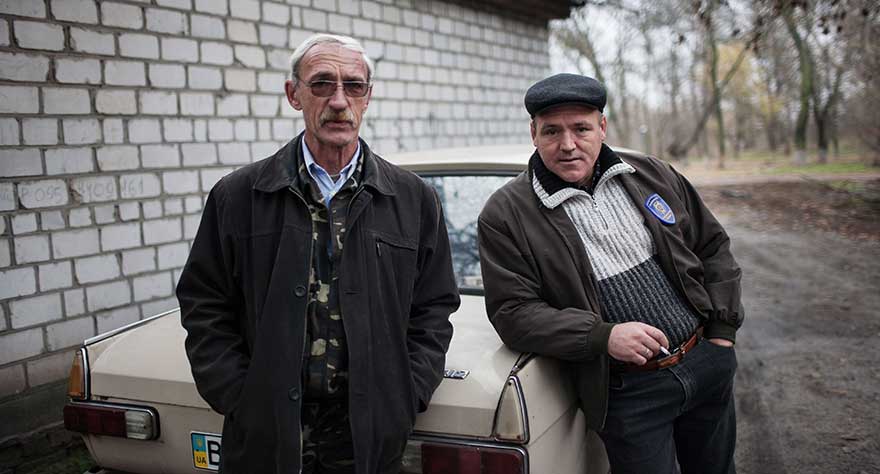Ukrainian Sheriffs (Hot Docs Review)

On March 11, 1989, Cops premiered on American TV. The reality show—still going strong today after 33 seasons—pairs camera crews with American law enforcement, giving small-screen viewers a front row seat to the day-to-day protection provided by the men and women of countless local, state, and federal jurisdictions. Invoking memories of Cops comes Ukrainian Sheriffs, a ride-along documentary from director Roman Bondarchuk.
The doc follows the exploits of a pair of sheriffs—Victor and Volodya—in the remote Ukrainian village of Stara Zburjivka. The duo, appointed by village Mayor Viktor Marunyak, respond to any and all calls from the town’s 1,800 residents, be they issues as mundane as domestic complaints or as serious as the discovery of a dead body. With cameras ever at the ready, the film is reminiscent of that American reality crime show.
Truth be told, Ukrainian Sheriffs pales in comparison to Cops from the angle of pure onscreen gratification. Where the US television show has the luxury of cherry-picking from only the sauciest of crimes recorded, this film, despite covering a period of time that is at least a year long (based only on seasonal clues), has very little excitement in the area of criminal activity. Maybe this is a good thing. Maybe, in a town of 1,800 citizens, things like broken windows and domestic squabbles are good to be the worst things these men see. But that doesn’t make it a compelling documentary. And while it’s quaint that Victor and Volodya are less enforcers of law and more voices of reason (arbitrating conflict in most cases and deferring real crime to Ukrainian police officials), it all grows tiresome.
Bondarchuk also struggles to find anything interesting in the personal lives of his two protagonists. The film attempts to humanize these individuals, but instead only succeeds in giving the viewer a look behind a very dull curtain, revealing activity that isn’t interesting beyond the base curiosity of seeing how people live in a part of the world otherwise unknown.
Where the film excels, though, is its look at the bigger political picture. The film is slow to start, but as it gets going, it delves into political areas similar to those found in other Ukraine-centric docs like Maidan and Winter on Fire, by visiting and revisiting the escalating Crimean tensions. However, Ukrainian Sheriffs does so on a local scale—namely, how the national crisis and the battle with Russia could affect local men subject to being drafted. It’s thought-provoking stuff that offers insight into the conflicting approaches to responsibility, survival, and patriotism that these men wrestle with, and that other men judge them on.
As a whole, Ukrainian Sheriffs can’t meet the challenge to make its own subject matter interesting. It might have its moments, but those moments aren’t enough to compensate for the rest. This is a film best suited for Ukrainian doc completists or people with a vested interest in the regional ongoings.
